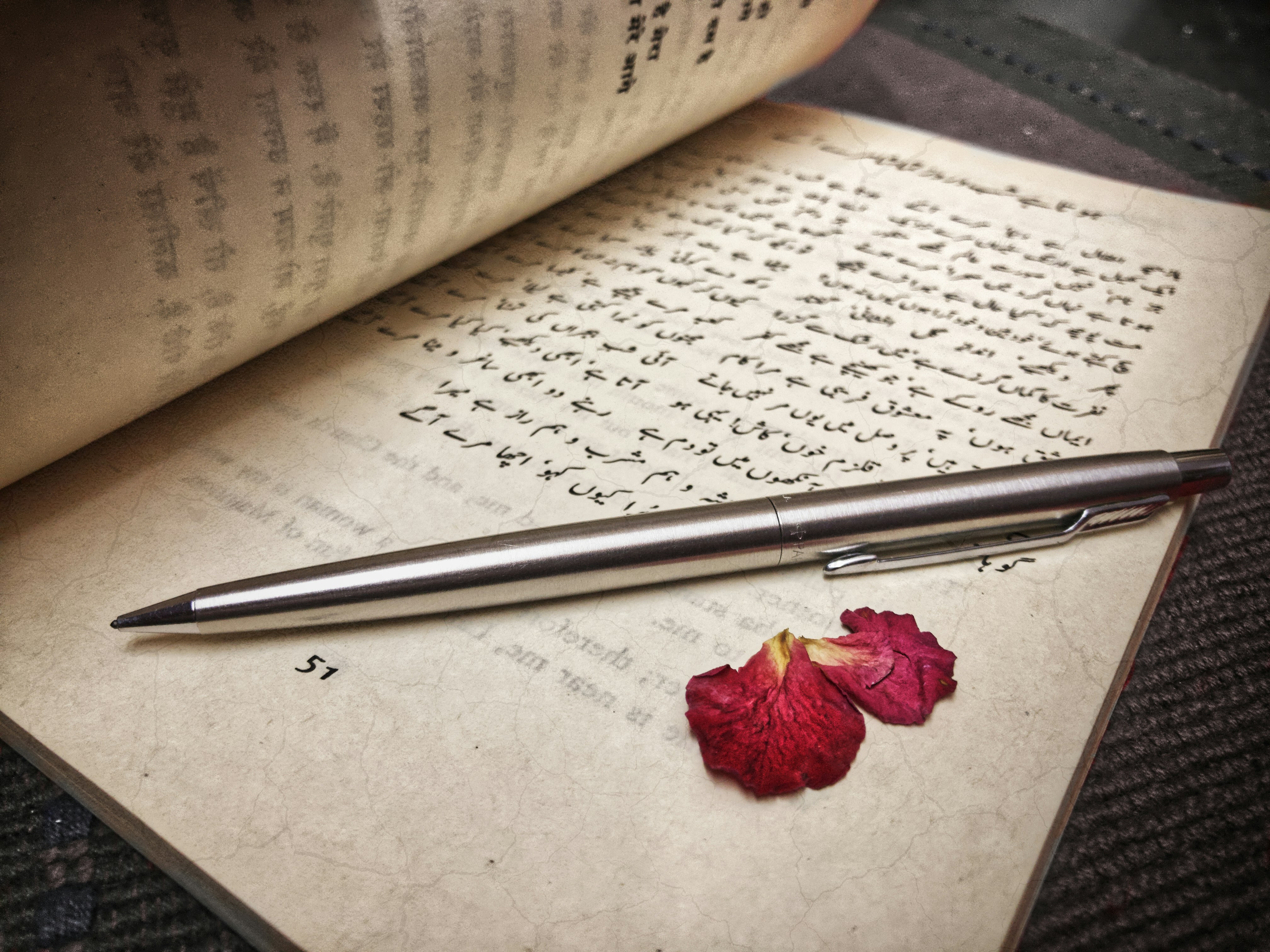Understanding Urdu poetry
By Justice Katju
In my opinion the best prose written in India is in Bengali ( see particularly the works of Sharad Chandra Chattopadhyaya), and the best poetry is in Urdu
https://www.youtube.com/watch?v=HAVIuDVdv3U&t=440s&pp=ygUSa2F0anUgd2hhdCBpcyB1cmR1
However, while some verses in Urdu poetry can be easily understood, there are many which cannot.
There are several reasons for this :
1. Many Urdu poets, e.g. Mirza Ghalib, were of the view that the language of poetry should not be the same as that of the common man. Ghalib had a horror of the commonplace in poetic expression, and this often makes his poetry obscure. His early poems were highly Persianized, and therefore often difficult to understand. His biographer Hali wrote that about one third of Ghalib’s verses can hardly be called Urdu, and even till today some of his verses are difficult to understand.
2. As I mentioned in the article below, Urdu was created by combining two languages viz Persian and Hindustani ( which is why at one time it was called ‘rekhta’ which means hybrid )
http://justicekatju.blogspot.com/2012/02/what-is-urdu-speech-delivered-on-8.html
https://www.youtube.com/watch?v=evJHMCtAKCw&t=4s&pp=ygUSa2F0anUgd2hhdCBpcyB1cmR1
That is why Urdu has many Persian words in it, which the common man does not understand.
3. Urdu poetry often has an outer, literal, superficial meaning, and an inner, deeper, real meaning which the poet is seeking to convey indirectly and metaphorically, by allusion, hint, suggestion or indication. So you have to wrack your brain to understand it.
For instance, take the well known sher ( couplet ) of the renowned poet Faiz :
” Gulon mein rang bhare baad-e-naubahaar chale
Chale bhi aao ki gulshan ka kaarobaar chale “
Now the literal, but superficial, meaning of the sher is :
” A colourful wind of the new spring is blowing among the flowers
Come, so that the work of the garden can be done “
But this is not the real meaning which the poet Faiz is seeking to convey. For knowing that you have to use your brains and also understand the historical context in which the poet wrote. He wrote the poem in 1954 when martial law was prevailing in Pakistan, and he was himself in Montgomery jail implicated in the Rawalpindi Conspiracy Case , facing a court martial in which he could have been sentenced to death. So it was not safe to speak directly. Hence Faiz writes indirectly, by allusions and hints.
Although the world ‘gulshan’ literally means garden, but in the above sher it means the country.
So the real meaning of the sher of Faiz is this :
” The objective conditions in the country are ripe ( for a revolution )
Come forward patriots, the country needs you “
So interpreted, the poem is not a love poem at all, as many people think, but a call for a revolution.
4. We may take another example
The great Indian Urdu poet Majrooh Sultanpuri was once invited to a mushaira in Pakistan. There he read the following sher ( couplet ) :
” बुला ही बैठे अहल-इ -हरम तो ऐ मजरूह
हम भी बग़ल में लिए एक सनम का हाथ चले ”
” Bula hi baithe ahal-e-haram to ai Majrooh
Hum bhi baghal mein ek sanam ka haath chale ”
What does this sher mean ? It sounds esoteric, so let me explain :
The word ‘ahal’ means people, ‘e’ means of, and ‘haram’ ordinarily means Kaaba. But in this context ‘ahal-e-haram’ means Pakistan ( since Pakistan had declared itself an Islamic state ).
The word ‘sanam’ has a double meaning. It means idol, as well as a beautiful woman.
So Majrooh says that although he has been called to a holy Islamic land, but he has brought his idol with him ( i.e.he has not forsaken India ( where most people worship idols, which is forbidden in Islam )
https://justicekatju.com/a-sher-of-majrooh-sultanpuri-89259ef4c601
Here is another great poem by Majrooh, and its explanation
https://indicanews.com/the-greatest-revolutionary-poem/
Urdu poetry, by it very nature, is a poetry of protest, protest against the afflictions of the common man, and against injustice. In this respect it is a successor to Kabir’s poetry
Consider the poem ‘Hum dekhenge’ by Faez
https://en.wikipedia.org/wiki/Hum_Dekhenge
https://www.rekhta.org/nazms/va-yabqaa-vajh-o-rabbik-hum-dekhenge-ham-dekhenge-faiz-ahmad-faiz-nazms
Since this poem was an attack against the martial law imposed by Gen Zia-ul-Haq, the poet wrote in indirect and metaphorical language, to play it safe.
On the other hand, the Pakistani Urdu poet Habib Jalib wrote his poem ‘Hukmaran ho gaye kamine log’ in direct language, even mentioning the name of Gen Zia, and as a result he was jailed
https://www.youtube.com/watch?v=TRgg4I1EuqQ
Great injustice has been done to Urdu, particularly after 1947, by bigoted people, who branded Urdu as the language of Muslims alone, and as a foreign language.
The truth is that before 1947 Urdu was the common language of all educated people in large parts of India, whether Hindu, Muslim, Sikh or Chistian. Also, it was a ‘desi’ ( indigenous ) language, unlike Arabic and Persian which were foreign languages
http://justicekatju.blogspot.com/2014/06/great-injustice-to-urdu.html
Urdu poetry has the power and sophistication which modern Hindi poetry lacks, but I was hooted at when I said this in a function in Allahabad many years ago
https://www.linkedin.com/pulse/power-urdu-poetry-my-sc-judgments-markandey-katju
https://www.theweek.in/news/india/2020/01/05/opinion-indian-people-language-is-it-hindi-or-urdu.html
Urdu poetry inspired the Indian people during the freedom struggle, e.g. Bismil’s poem ‘Sarfaroshi ki tamanna ab hamaare dil mein hai’
Similarly it will be needed in the coming tempestuous times in India
https://twitter.com/mkatju/status/168078427811049472
To conclude I may quote Sahir Ludhianvi’s lament at the Ghalib death anniversary function in Agra in 1969 :
“Jin shahron mein goonji thi Ghalib ki nava barson
Un shahron mein ab Urdu benaam-o-nishaan thehri
Azadi-e- kamil ka ailaan hua jis din
Matoob zubaan thehri, ghaddaar zubaan thehri
Jis ahad-e-Siyasat ne yeh zinda zubaan kuchli
Us ahad-e-siyasat ko marhoomon ka gham kyun hai ?
Ghalib jise kahte hain Urdu ka hi shayar tha
Urdu par sitam dhaakar, Ghalib par karam kyun hai ? ”


